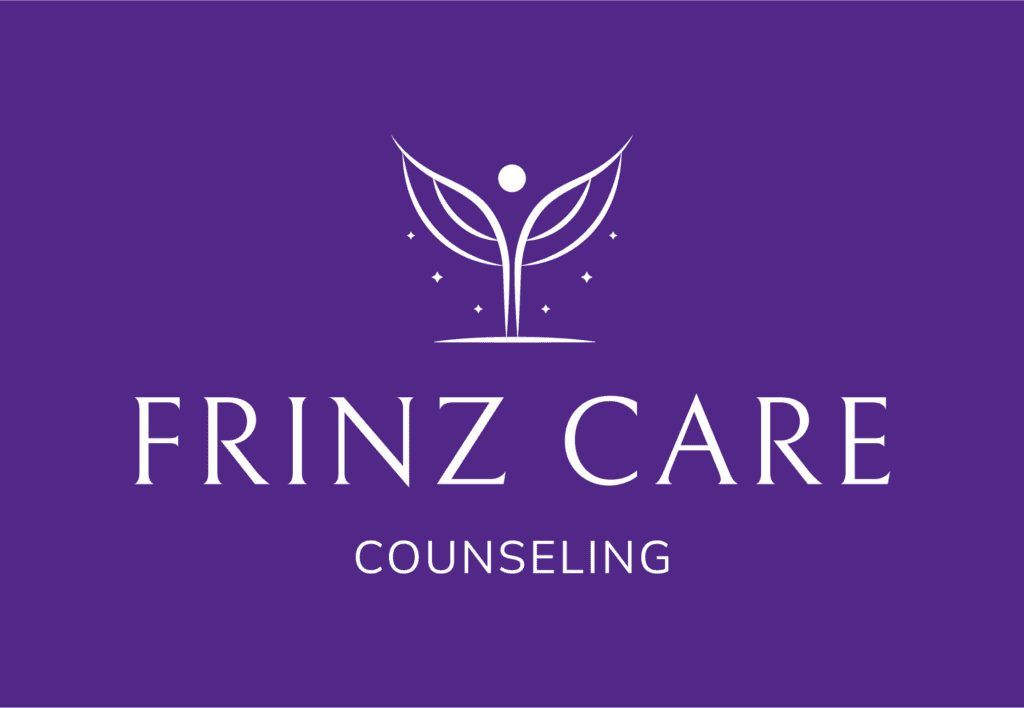Have you found yourself in recent days feeling overwhelmed with dread or plagued by a deep-seated sadness? If these feelings are persistent and interfering with your daily life, you may be experiencing symptoms of depression and anxiety. As part of your mental wellness journey, understanding these symptoms is your first step toward seeking help.
Brief Overview of Depression and Anxiety
Depression and anxiety are two common mood disorders manifesting as intense feelings of sadness, hopelessness, fear, or worry. You can experience them separately or, as is frequently the case, concurrently, with one amplifying the symptoms of the other.
Depression often leaves you feeling constantly drained, causing a sudden disinterest in activities you previously enjoyed and filling your mind with feelings of despair and hopelessness. On the other hand, anxiety can generate an incessant sense of worry or fear, engulfing you in a state of restlessness or irritability.
Importance of Understanding Symptoms
Recognizing the symptoms of depression and anxiety allows you to seek appropriate help and take charge of your mental health. Speak up about your feelings and experiences in order to receive the correct diagnosis and treatment. It is by getting to the root of these symptoms that effective strategies for managing these mood disorders can be put into place.
How Frinz Care Can Help
At Frinz Care, we understand that dealing with depression and anxiety can be overwhelming. Our holistic approach assesses your mental, physical, social, and emotional well-being, enabling us to devise a comprehensive treatment plan tailored just for you. We are committed to walk with you in every step of your recovery, adapting strategies as needed to ensure progress and sustained well-being.
Quick Facts about Depression and Anxiety:
- Depression and anxiety are among the most common mental health disorders.
- They can be experienced separately or concurrently.
- Stress and trauma, particularly at an early age, can trigger both conditions.
- Physically, anxiety often presents as a racing heart or a feeling of being shaky or sweaty.
- Depression can manifest as a persistent feeling of sadness, loss of interest, and a lack of energy.

Understanding Depression
Depression is more than just feeling sad or going through a rough patch. It’s a serious mental health condition that requires understanding and medical care. Depression is characterized by persistent feelings of sadness, hopelessness, and disinterest that dramatically affect day-to-day functioning.
At Frinz Care, we believe that understanding the types and symptoms of depression is the first step towards seeking help and getting better. Let’s dive deeper into the different forms of depression.
Types of Depression
Major Depressive Disorder (MDD)
Major Depressive Disorder, more often referred to as simply ‘depression,’ is characterized by a persistent feeling of sadness or a lack of interest in outside stimuli. In 2017, around 17.3 million adults in the U.S. had at least one major depressive episode, representing 6.7 percent of all American adults.
Persistent Depressive Disorder (Dysthymia)
Persistent depressive disorder, also known as dysthymia, is a form of depression that typically continues for at least two years. It is less severe than major depression but involves the same high levels of sadness lasting for more extended periods.
Premenstrual Dysphoric Disorder (PMDD)
Premenstrual Dysphoric Disorder is a severe form of premenstrual syndrome (PMS). It’s characterized by extreme mood shifts that can disrupt work and damage relationships.
Depressive Disorder Due to Another Medical Condition
Many medical illnesses (such as cancer, injuries, infections, and chronic illnesses) can trigger symptoms of depression.
Adjustment Disorder with Depressed Mood
Also called situational depression, this condition occurs when a person is unable to cope with or adjust to a particular source of stress, such as a major life change, loss, or event.
Seasonal Affective Disorder (SAD)
Seasonal Affective Disorder is a type of depression that’s related to changes in seasons, typically starting in late fall and early winter and going away during the spring and summer.
Bipolar Disorder
Also known as manic-depressive disorder, bipolar disorder is characterized by episodes of depression and mania (overly high or irritable mood).
Symptoms of Depression

Depression symptoms can vary and range in severity depending on the individual. You may be experiencing depression if you have persistent:
- Feelings of sadness or irritability.
- Loss of interest in activities once enjoyed.
- Sleep disturbances, either insomnia or oversleeping.
- Changes in appetite.
- Trouble focusing or making decisions.
- Feeling hopeless or thoughts of suicide.
How Depression Affects Daily Life
Depression can limit your quality of life. It can make it hard to get up in the morning and face the day, which can lead to missed work or school. It can also cause you to withdraw from friends and activities you love, leading to a sense of isolation.
At Frinz Care, we understand that depression is not a character flaw or a weakness. It’s a medical condition that deserves treatment just like any other health issue. If you believe you may be dealing with depression, we encourage you to take that vital first step towards seeking professional help. Visit our Depression page to learn more about how we can support you on your journey to recovery.
Understanding Anxiety
Anxiety, a common mental health issue, is more than just feeling worried or stressed. It’s a type of mood disorder that leads to excessive fear, nervousness, or worry. This worry often feels out of control, and it can arise during regular everyday activities like meeting new people. In severe cases, it can even interfere with your daily life. As mental health experts at Frinz Care, we firmly believe that understanding anxiety is the first step towards managing it.
Types of Anxiety Disorders
Anxiety isn’t a one-size-fits-all condition. It can manifest in different ways, leading to various types of anxiety disorders:
Generalized Anxiety Disorder
This is characterized by constant worry about many different things. People with this disorder often feel anxious most days and find it hard to remember the last time they felt relaxed.
Social Anxiety Disorder
This disorder involves excessive worry about social interactions. People with social anxiety disorder fear being judged, embarrassed, or humiliated in social situations.
Panic Disorder
Panic disorder causes sudden, intense feelings of fear that lead to panic attacks. These attacks can include symptoms like chest pain, a pounding heart, and a feeling of losing control.
Phobias
Phobias are intense fears of specific things or situations, such as spiders, heights, or flying. The fear is out of proportion to the actual danger posed by the object or situation.
Obsessive-Compulsive Disorder
Individuals with this disorder experience recurrent, unwanted thoughts (obsessions) that lead to repetitive behaviours (compulsions) performed in an attempt to ease the anxiety.
Posttraumatic Stress Disorder
This usually occurs after a traumatic event and can cause flashbacks, panic attacks, or anxious feelings when something triggers a memory of the event.
Symptoms of Anxiety
Anxiety can have both physical and cognitive symptoms. Physically, you might feel sweaty or shaky, or experience a racing heart. Cognitively, you might have racing or intrusive thoughts, find it difficult to concentrate, or feel overwhelmed. In some cases, anxiety can also lead to avoidance behaviours, such as avoiding situations or places that trigger anxiety.
How Anxiety Affects Daily Life
Anxiety can significantly impact your daily life. It can make it difficult to work, go to school, or maintain relationships. It can also lead to physical health issues, such as insomnia, headaches, or digestive problems.
At Frinz Care, we understand the challenges that come with living with anxiety. We’re here to help you navigate this journey and provide you with the tools to manage your symptoms effectively.
The Intersection of Depression and Anxiety
Co-Occurrence of Depression and Anxiety
Depression and anxiety are not mutually exclusive – they can and often do occur together. In fact, research indicates about 60% of people with anxiety also exhibit symptoms of depression, and vice versa. This points to a significant overlap between these two conditions. It’s possible to feel anxious and depressed at the same time, experiencing feelings of dread, nervousness, sadness, and hopelessness simultaneously.
At Frinz Care, we acknowledge the complex interplay between depression and anxiety. We understand that each individual’s experiences are unique, and we tailor our services to address the unique aspects of your conditions.
How Depression and Anxiety Can Worsen Each Other’s Symptoms
The co-occurrence of depression and anxiety can exacerbate the severity of symptoms for both disorders. For instance, the constant worry characteristic of anxiety can amplify feelings of hopelessness associated with depression. Furthermore, the reduced energy and interest in activities, common in depression, can intensify anxiety and make it more difficult to manage.
Depression and anxiety share some common risk factors, including early life stress and trauma. These shared genetic and environmental influences could contribute to the simultaneous presence and entwined progression of both disorders.
Moreover, the avoidance behavior often seen in those suffering from anxiety could potentially lead to or exacerbate depressive symptoms. By persistently avoiding the things that cause worry or fear, an individual might start to feel more isolated and hopeless, which are key symptoms of depression.
With all these complexities in mind, at Frinz Care, we approach the treatment of co-occurring depression and anxiety with a comprehensive, individualized, and empathetic approach. Our team of professionals is equipped to help you navigate these challenges and guide you towards recovery.
It’s crucial to remember that while living with both depression and anxiety can be challenging, effective treatments are available. Both conditions are manageable, and with the right support, you can lead a healthy, fulfilling life.
Treatment Options for Depression and Anxiety
Getting the necessary help to manage depression and anxiety can be an empowering step towards better mental health. Here at Frinz Care, we believe in a holistic approach, combining various treatment methods tailored to your unique needs. This section will explore the different options available to help manage depression and anxiety.
Talk Therapy
Talk therapy, also known as psychotherapy or counseling, is an effective treatment method for both depression and anxiety. In this approach, a professional therapist works with you to address your symptoms and develop coping strategies. Here are three main types of talk therapies we often utilize:
Cognitive Behavioral Therapy (CBT)
CBT is an evidence-based approach that helps individuals identify and change negative thought patterns and behaviors associated with depression and anxiety. It equips you with practical coping strategies and problem-solving skills.
Interpersonal Therapy (IPT)
IPT focuses on improving interpersonal relationships and addressing specific issues that may contribute to your depression and anxiety, such as grief, role transitions, and social isolation.
Problem-Solving Therapy
This approach provides you with skills to manage your symptoms by focusing on current problems and finding solutions.
Medication
Medications, like antidepressants, can be a useful part of treatment for some people. These drugs can help improve your mood and coping skills. Some commonly prescribed medications include:
Selective Serotonin Reuptake Inhibitors (SSRIs)
These are often the first type of medication prescribed for depression and anxiety. Examples include Citalopram (Celexa), Escitalopram (Lexapro), and Fluoxetine (Prozac).
Serotonin-Norepinephrine Reuptake Inhibitors (SNRIs)
These are another type of antidepressant that can be effective in treating depression and anxiety. Examples include Desvenlafaxine (Khedezla, Pristiq) and Duloxetine (Cymbalta).
Other Medications like Bupropion and Mirtazapine
These are also used to treat depression and anxiety. They include Bupropion (Aplenzin, Wellbutrin) and Mirtazapine.
Lifestyle Changes
In addition to therapy and medication, certain lifestyle changes can have a significant positive impact on your mental health.
Exercise
Regular physical activity is a proven mood-booster that’s good for your body and mind. It raises your self-esteem, improves your relationships, and is considered a treatment for mild to moderate depression.
Relaxation Techniques
Practices like yoga, meditation, and deep breathing exercises can ease your anxiety and lighten your mood.
Nutritious Diet
A balanced diet rich in lean proteins, fruits, vegetables, and healthy fats can boost your mood and energy. Aim to limit processed foods, sugar, caffeine, and alcohol.
The Role of Support Systems
Strong relationships can help you feel better. Reach out to your loved ones for support and encouragement.
Building Strong Relationships
Establishing and maintaining strong relationships with family and friends can provide a valuable support network during challenging times.
Seeking Support from Loved Ones, Therapists, or Support Groups
Don’t hesitate to let your loved ones know what you’re going through. If you need more help, reach out to a licensed therapist or join a support group. At Frinz Care, our online therapy services are designed to provide the support you need from the comfort of your own home.
Treating depression and anxiety often involves a combination of methods. What works best will depend on your unique circumstances. At Frinz Care, we are committed to helping you find the right path towards recovery.
When to Seek Help
Recognizing Early Signs of Depression and Anxiety
Understanding the early signs of depression and anxiety is crucial to tackling these conditions at their onset. For anxiety, early symptoms can include shakiness, a rapid increase in heart rate, tightness in the chest, rapid breathing, and racing thoughts. On the other hand, early signs of depression may involve isolating oneself, frequently entertaining negative thoughts, and recurring feelings of sadness.
Recognizing Advanced Signs of Depression and Anxiety
As depression and anxiety progress, these conditions can become more debilitating. Advanced signs of generalized anxiety disorder can include excessive worry for at least six months, restlessness, fatigue, difficulty concentrating, irritability, muscle tension, disturbances in sleep, and distress in social or occupational functioning.
In the case of major depressive disorder, symptoms can include feeling down or depressed most of the day, nearly every day, diminished interest in activities you once enjoyed, significant changes in weight, sleep disturbances, fatigue, and difficulty concentrating. Other severe symptoms can include recurrent thoughts of death and distress in social or occupational functioning.
Importance of Seeking Professional Help
When these symptoms begin to interfere with your daily life, it is important to seek professional help. If you find it difficult to function, no longer participate in activities you once enjoyed, or find it hard to get out of bed, it’s time to speak with a healthcare professional.
At Frinz Care, we understand the importance of addressing your mental health to live a fulfilling life. We provide effective treatment options for depression and anxiety including medications, psychotherapy, and lifestyle changes. If your symptoms are severe, we can connect you with crisis resources for immediate help. Don’t hesitate to reach out to us if you have concerns about your mental health.
It’s crucial to address these symptoms early on and not ignore them. Depression and anxiety are not signs of weakness, but serious health conditions that require professional care. At Frinz Care, we are here to provide the support and treatment you need to navigate these challenges and improve your quality of life.
Conclusion
Understanding the symptoms of depression and anxiety is the first step towards managing these conditions. Depression is characterized by feelings of sadness, lack of interest in previously enjoyed activities, changes in weight, sleep difficulties, fatigue, difficulty concentrating, recurrent thoughts of death, and distress in social or occupational functioning. On the other hand, anxiety symptoms can range from physical signs like racing heart and shortness of breath, cognitive symptoms like racing or intrusive thoughts, to avoidance behaviors, panic attacks, and social anxiety.
If you recognize these symptoms in yourself or someone you know, it’s essential not to ignore them. Instead, reach out for help. It’s okay to ask for assistance. Seeking help is not a sign of weakness, but an act of strength and self-care. It’s a crucial step in managing these conditions and improving your overall well-being.
At Frinz Care, we are here to support you every step of the way. Whether you’re dealing with depression, anxiety, or both, our team of professionals are experienced in working with individuals to create a customized treatment plan. Our services range from counseling for depression and anxiety to therapies for ADHD, Autism, PTSD, and Bipolar Disorder. We believe in nurturing well-being and fostering resilience, equipping you with the tools to handle future challenges.
You don’t have to face depression and anxiety alone. We’re here to help you navigate these challenges and live a fulfilling life. If you’re ready to take the first step towards managing your mental health, contact us today to schedule a consultation. For more insights into mental health, you can also explore our blog.
Together, we can navigate the journey towards healthier mental well-being.




